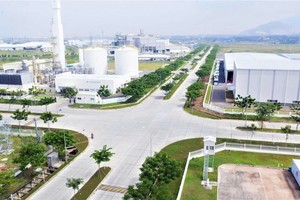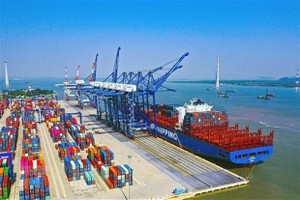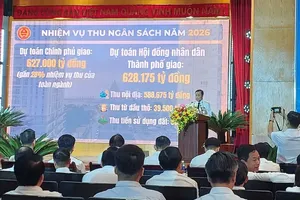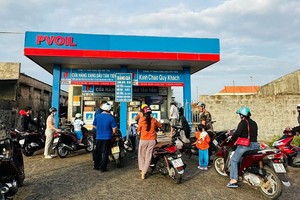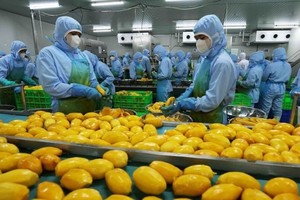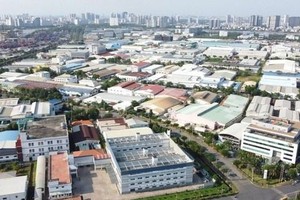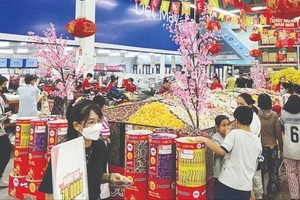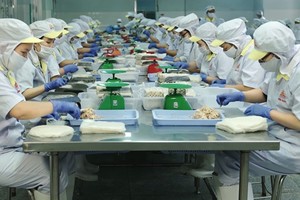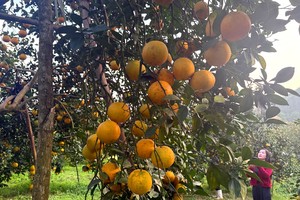Typical FTAs include the EU-Vietnam Free Trade Agreement (EVFTA), which took effect from August 1, 2020, the UK-Vietnam Free Trade Agreement (UKVFTA), which was implemented in early 2021, the Regional Comprehensive Economic Partnership (RCEP), which was signed in November 2020. According to many experts, the RCEP, which includes ten ASEAN member countries and the five countries that the ASEAN has signed FTAs with, namely Australia, China, South Korea, Japan, and New Zealand, is the most potential FTA.
According to Mr. Dang Phuc Nguyen, General Secretary of the Vietnam Fruit and Vegetable Association, up to now, the RCEP has helped Vietnamese agricultural products to enter a large market of 15 member countries, accounting for nearly 30 percent of the world's population with 2.2 billion people. The advantage of Vietnamese goods when exporting to this block is that the geographical distances of the intra-bloc countries are not too far, so logistics costs are low, and goods transport activity is easier than other markets, such as the US and Europe.
However, many Vietnamese enterprises have not grasped the opportunities brought about by FTAs yet. For instance, although the EVFTA has come to effect for more than five months, many Vietnamese products have not taken advantage of the tariff preferences. For example, although the Vietnamese cashew industry is always the world's No.1 cashew exporter, it has not yet been given preferential treatment when exporting to the EU market. The sugar industry experiences the same situation.
There are many reasons for products unable to enter fastidious markets, but it is mainly because Vietnamese products have not passed technical barriers set by importing countries. In the opposite direction, FTAs have created many challenges for Vietnamese enterprises right on home ground. Goods from these countries have been imported into Vietnam at much cheaper prices by taking advantage of FTAs.
Enterprises must make more efforts themselves to overcome challenges and bring Vietnamese products into fastidious markets, as well as gain footholds in the domestic market. Together with the authorities, enterprises must build their product brands to step by step turn Vietnam into an exporting country, especially branded agricultural products in the global market.
According to Mr. Dang Phuc Nguyen, General Secretary of the Vietnam Fruit and Vegetable Association, up to now, the RCEP has helped Vietnamese agricultural products to enter a large market of 15 member countries, accounting for nearly 30 percent of the world's population with 2.2 billion people. The advantage of Vietnamese goods when exporting to this block is that the geographical distances of the intra-bloc countries are not too far, so logistics costs are low, and goods transport activity is easier than other markets, such as the US and Europe.
However, many Vietnamese enterprises have not grasped the opportunities brought about by FTAs yet. For instance, although the EVFTA has come to effect for more than five months, many Vietnamese products have not taken advantage of the tariff preferences. For example, although the Vietnamese cashew industry is always the world's No.1 cashew exporter, it has not yet been given preferential treatment when exporting to the EU market. The sugar industry experiences the same situation.
There are many reasons for products unable to enter fastidious markets, but it is mainly because Vietnamese products have not passed technical barriers set by importing countries. In the opposite direction, FTAs have created many challenges for Vietnamese enterprises right on home ground. Goods from these countries have been imported into Vietnam at much cheaper prices by taking advantage of FTAs.
Enterprises must make more efforts themselves to overcome challenges and bring Vietnamese products into fastidious markets, as well as gain footholds in the domestic market. Together with the authorities, enterprises must build their product brands to step by step turn Vietnam into an exporting country, especially branded agricultural products in the global market.

